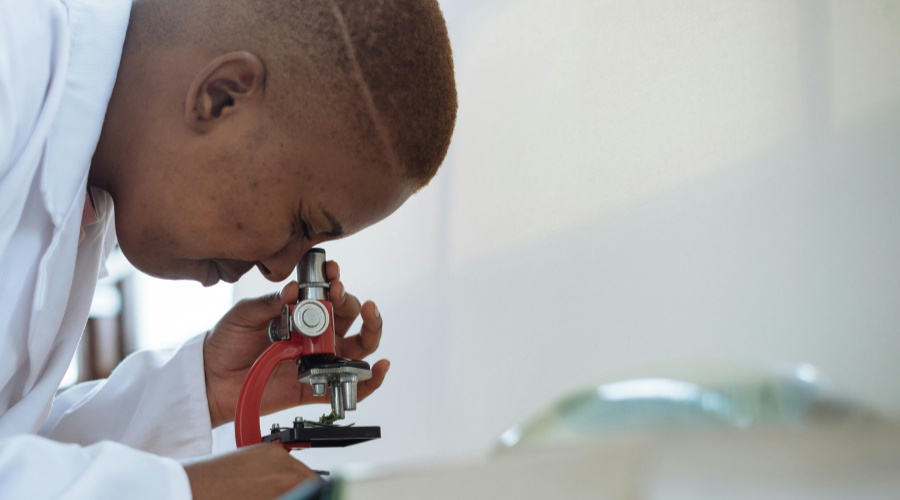If you're struggling with excess facial hair due to PCOS, you're not alone. This common endocrine disorder affects millions of women, often causing unwanted hair growth that can impact self-esteem and confidence. While there are various hair removal methods available, laser treatment has emerged as an effective long-term solution for many.
As you consider your options, you may be wondering about the costs, procedure details, and expected results of facial laser hair removal. This article will provide an in-depth look at how laser treatment works for PCOS-related hirsutism, what to expect during sessions, potential side effects, and whether it's the right choice for you.
Excess Facial Hair: A Common Symptom of PCOS
Understanding Hirsutism in PCOS
Polycystic Ovary Syndrome (PCOS) is a complex hormonal disorder that affects many women of reproductive age. One of its most visible and distressing symptoms is excess facial hair growth, medically known as hirsutism. This condition occurs when women develop thick, dark hair in areas typically associated with male hair growth patterns, such as the upper lip, chin, and sideburns.
The Hormonal Link
The root cause of hirsutism in PCOS lies in hormonal imbalances. Women with PCOS often have higher levels of androgens, sometimes referred to as "male hormones," though they're present in all women. These elevated androgen levels can stimulate hair follicles, leading to increased hair growth in areas sensitive to these hormones.
Impact on Quality of Life
Excess facial hair can significantly impact a woman's self-esteem and quality of life. Many women report feeling self-conscious or embarrassed about their appearance, which can affect their social interactions and overall confidence. This emotional toll underscores the importance of finding effective treatments for hirsutism in PCOS patients.

Causes of Excessive Facial Hair Growth in PCOS
Polycystic Ovary Syndrome (PCOS) is a complex hormonal disorder that can lead to various symptoms, including excessive facial hair growth, also known as hirsutism. Understanding the underlying causes of this condition is crucial for those seeking effective treatments like laser hair removal.
Hormonal Imbalance
The primary culprit behind excessive facial hair growth in PCOS is an imbalance of hormones. Women with PCOS often have higher levels of androgens, which are typically considered "male" hormones. This excess can stimulate hair follicles, resulting in thicker, darker hair growth on the face and other parts of the body.
Insulin Resistance
Many women with PCOS also experience insulin resistance, which can exacerbate hormonal imbalances. When the body becomes less sensitive to insulin, it may produce more of this hormone. Elevated insulin levels can, in turn, trigger the ovaries to produce more androgens, further contributing to hirsutism.
Genetics and Environment
While the exact cause of PCOS remains unclear, genetic factors likely play a role in its development. Additionally, environmental factors such as diet, stress, and lifestyle choices may influence the severity of symptoms, including excessive facial hair growth. Understanding these contributing factors can help in developing a comprehensive approach to managing PCOS-related hirsutism and considering treatments like laser hair removal.

How Laser Hair Removal Can Help Treat PCOS Facial Hair
Understanding the PCOS-Hair Growth Connection
Polycystic Ovary Syndrome (PCOS) often leads to excess facial hair growth, a condition known as hirsutism. This occurs due to hormonal imbalances, particularly elevated androgen levels. For many women, this unwanted hair can be a source of distress and lowered self-esteem. Laser hair removal offers a promising solution to manage this symptom effectively.
The Benefits of Laser Treatment for PCOS
Laser hair removal provides several advantages for those dealing with PCOS-related facial hair:
- Long-lasting results: Unlike temporary methods like shaving or waxing, laser treatments can lead to permanent hair reduction.
- Precision targeting: The laser can selectively target dark, coarse hairs while leaving surrounding skin undamaged.
- Reduced ingrown hairs: Laser treatments can help minimize the occurrence of painful, unsightly ingrown hairs.
What to Expect During Treatment
During a laser hair removal session, a trained professional will use a handheld device to deliver concentrated light beams to hair follicles. The pigment in these follicles absorbs the light, which then destroys the hair. While you may experience some discomfort, most patients find the procedure tolerable. Multiple sessions are typically required for optimal results, as hair grows in cycles.
What to Expect During a Laser Hair Removal Treatment
Preparing for Your Session
Before your laser hair removal treatment, you'll need to avoid sun exposure and tanning for several weeks. Shave the treatment area 24-48 hours beforehand, but don't wax or pluck. Arrive with clean, makeup-free skin. Your technician will provide protective eyewear and may apply a cooling gel to your skin.
The Procedure Itself
During the treatment, you'll feel a series of zaps as the laser targets your hair follicles. Many describe the sensation as similar to a rubber band snapping against the skin. The procedure typically lasts 15-30 minutes for facial areas. You may notice a slight burning smell, which is normal and harmless.
Aftercare and Results
Immediately following treatment, your skin may appear red and feel slightly swollen, similar to a mild sunburn. Apply cold compresses and avoid hot showers for 24 hours. You'll likely see hair shedding over the next 1-3 weeks. Multiple sessions, usually 6-8, spaced 4-6 weeks apart, are necessary for optimal results. With each treatment, you'll notice progressively less hair regrowth.
The Cost of Laser Hair Removal for PCOS Facial Hair
When considering laser hair removal for PCOS-related facial hair, it's important to understand the financial aspects of this treatment. The cost can vary significantly based on several factors.
Factors Influencing Cost
The price of laser hair removal for facial hair caused by PCOS depends on:
- The size of the treatment area
- The number of sessions required
- Your geographic location
- The type of laser technology used
- The expertise of the practitioner
Average Price Range
On average, you can expect to pay between $200 to $400 per session for facial laser hair removal. However, keep in mind that multiple sessions are typically necessary for optimal results. A full treatment course usually consists of 6 to 8 sessions, bringing the total cost to approximately $1,200 to $3,200.
Long-Term Cost Considerations
As you consider laser hair removal for excess facial hair caused by PCOS, weigh the potential benefits against the costs and commitment required. While this treatment can provide long-lasting hair reduction, it typically requires multiple sessions and ongoing maintenance. Consult with a qualified dermatologist or laser specialist to determine if you're a good candidate and to develop a customized treatment plan.
Remember that results vary, and combining laser treatments with other PCOS management strategies like hair reduction fade oil may yield the best outcomes. Ultimately, the decision to pursue laser hair removal is personal, but with proper research and professional guidance, you can make an informed choice about managing unwanted facial hair.



